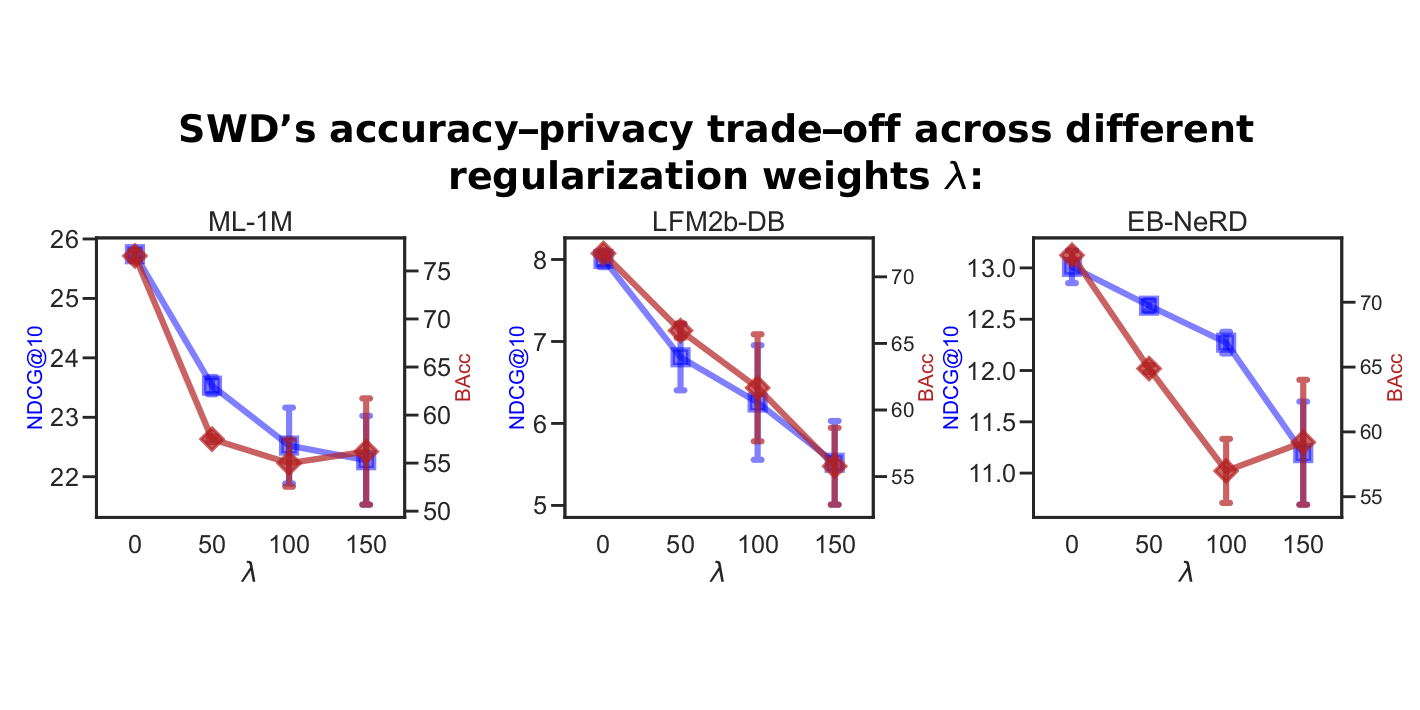
Abstract
Recommendation models often encode users’ sensitive attributes (e.g., gender or age) in their learned representations during training, leading to biased (e.g., stereotypical) recommendations and potential privacy risks. To address this, previous research has predominantly focused on adversarial training to make user representations invariant to sensitive attributes. However, adversarial methods can be unstable and computationally expensive due to additional network parameters. An alternative approach is the use of regularization losses that minimize distributional discrepancies between different demographic groups during training. In particular, the Sliced Wasserstein Distance (SWD) provides a computationally efficient and stable solution for mitigating bias by directly aligning the distributions of user representations across groups. We follow this alternative strategy and propose an in-processing approach to mitigate encoded biases in user representations of implicit feedback-based recommender systems by using SWD-based regularization. We perform extensive experiments targeting the debiasing of the users’ gender on three datasets ML-1M, LFM2b-DB, and EB-NeRD from the movie, music, and news domains, respectively. Our results indicate that SWD-based regularization is an effective approach for mitigating encoded biases in user representations while keeping competitive recommendation accuracy.
Citation
Gustavo
Escobedo,
David
Penz,
Markus
Schedl
Debiasing Implicit Feedback Recommenders via Sliced Wasserstein Distance-based Regularization
Proceedings of the Nineteenth ACM Conference on Recommender Systems,
1153-1158, doi:10.1145/3705328.3759320, 2025.
BibTeX
@inproceedings{Escobedo2025Wasserstein,
title = {Debiasing Implicit Feedback Recommenders via Sliced Wasserstein Distance-based Regularization},
author = {Escobedo, Gustavo and Penz, David and Schedl, Markus},
booktitle = {Proceedings of the Nineteenth ACM Conference on Recommender Systems},
publisher = {ACM},
doi = {10.1145/3705328.3759320},
url = {http://dx.doi.org/10.1145/3705328.3759320},
pages = {1153-1158},
month = {September},
year = {2025}
}
